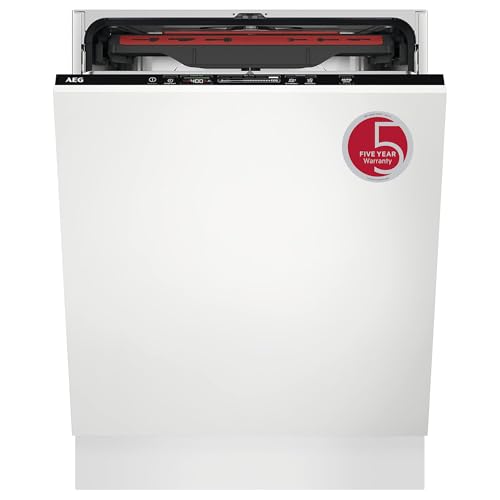




Stubborn sticker residue can be a frustrating problem to deal with. Whether it’s a sticky label on a new product or the remnants of an old price tag, getting rid of that stubborn residue can be a challenging task. Fortunately, there are several effective methods that can help you remove sticker residue easily, without damaging the surface or leaving behind any marks.
Vinegar Solution: One of the simplest and most effective ways to remove sticker residue is by using a vinegar solution. Mix equal parts of white vinegar and water in a bowl, and then soak a cloth or sponge in the solution. Gently rub the sticky residue with the soaked cloth or sponge, and the adhesive should start to dissolve. Rinse the area with warm water and pat it dry.
Heat Method: Another method to remove stubborn sticker residue is by using heat. This method is particularly effective on glass, metal, and plastic surfaces. Simply use a hairdryer or a heat gun to warm up the sticker residue, making it easier to remove. Once the residue is heated, gently peel it off with your fingers or a plastic scraper. Be careful not to burn yourself in the process.
Rubbing Alcohol: Rubbing alcohol is another useful solution for removing stubborn sticker residue. Apply a small amount of rubbing alcohol onto a cloth or cotton ball and gently rub the affected area. The alcohol will help dissolve the adhesive, making it easier to wipe away the residue. Rinse the area with warm water and dry it thoroughly.
Oil Method: If you’re dealing with sticker residue on a delicate surface like wood or painted walls, using oil can be a safe and effective method. Apply a small amount of cooking oil, baby oil, or even peanut butter onto the residue. Let it sit for a few minutes to allow the oil to penetrate the adhesive. Then, gently rub the residue with a cloth or sponge to remove it. Once the residue is removed, clean the area with a mild soap and warm water, and then wipe it dry.
When using any of these methods, it’s always a good idea to test them on a small, inconspicuous area first, to ensure they don’t damage the surface. Remember to be patient and gentle when removing sticker residue, and with the right method, you can easily get rid of it without any hassle.
Natural Removers
Vinegar
Vinegar is a versatile natural cleaning agent that can help remove stubborn sticker residue. All you need to do is dampen a cloth or paper towel with vinegar and rub it onto the sticky residue. Let it sit for a few minutes to allow the vinegar to penetrate the residue, then use a scrub brush or sponge to gently scrub away the residue. Rinse the area with water and wipe it clean.
Baking Soda
Baking soda is another effective natural remover for sticker residue. Make a paste by mixing baking soda with a small amount of water. Apply the paste to the residue and let it sit for about 10 minutes. Then, use a damp cloth or sponge to scrub the area. The baking soda will help break down the residue, making it easier to remove. Rinse the area with water and wipe it clean.
Citrus Juice
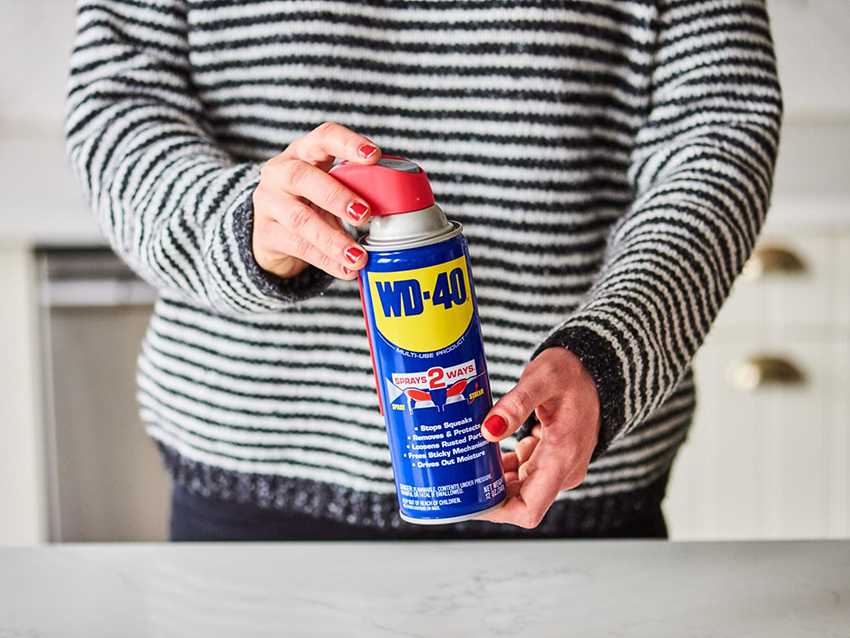
Citrus juices, like lemon or orange juice, contain natural cleaning properties that can help dissolve sticky residue. Squeeze some citrus juice onto a cloth or paper towel and rub it onto the sticky area. Let it sit for a few minutes, then use a scrub brush or sponge to remove the residue. The acidic properties of citrus juice will help break down the adhesive, allowing the residue to be easily wiped away.
Olive Oil
Olive oil can also be used as a natural remover for sticker residue. Apply a small amount of olive oil to a cloth or paper towel and rub it onto the sticky area. Let it sit for a few minutes to allow the oil to soften the residue. Then, use a scrub brush or sponge to gently scrub away the residue. Olive oil is gentle on surfaces and will help dissolve the adhesive, making it easier to remove.
Table Salt
Table salt can be used as an abrasive natural remover for sticker residue. Sprinkle a small amount of salt onto the sticky area and gently rub it in with a cloth or sponge. The salt will act as a mild abrasive to help lift the sticky residue. Continue rubbing until the residue is completely removed, then rinse the area with water and wipe it clean.
Heat Application
Using a Hairdryer
One effective method to remove stubborn sticker residue is by applying heat using a hairdryer. Start by setting your hairdryer to a low to medium heat setting. Hold the hairdryer 2-3 inches away from the sticker residue and begin heating the area. Move the hairdryer back and forth to evenly distribute the heat. The heat will help soften the adhesive, making it easier to remove the sticker residue. Once the residue is heated, use a plastic scraper or your fingers to gently peel off the sticker residue. Be cautious not to burn yourself while using the hairdryer.
Using an Iron
If you don’t have a hairdryer, another option is to use an iron to apply heat to the sticker residue. Set your iron to a low heat setting and wait for it to heat up. Place a thin cloth or piece of parchment paper over the sticker residue to protect the surface from the heat. Then, gently move the iron back and forth over the cloth or parchment paper. This will transfer the heat through the cloth and onto the sticker residue. After a few seconds, remove the iron and use a plastic scraper or your fingers to peel off the softened sticker residue. Always be cautious when using an iron, as it can get very hot.
Using Boiling Water
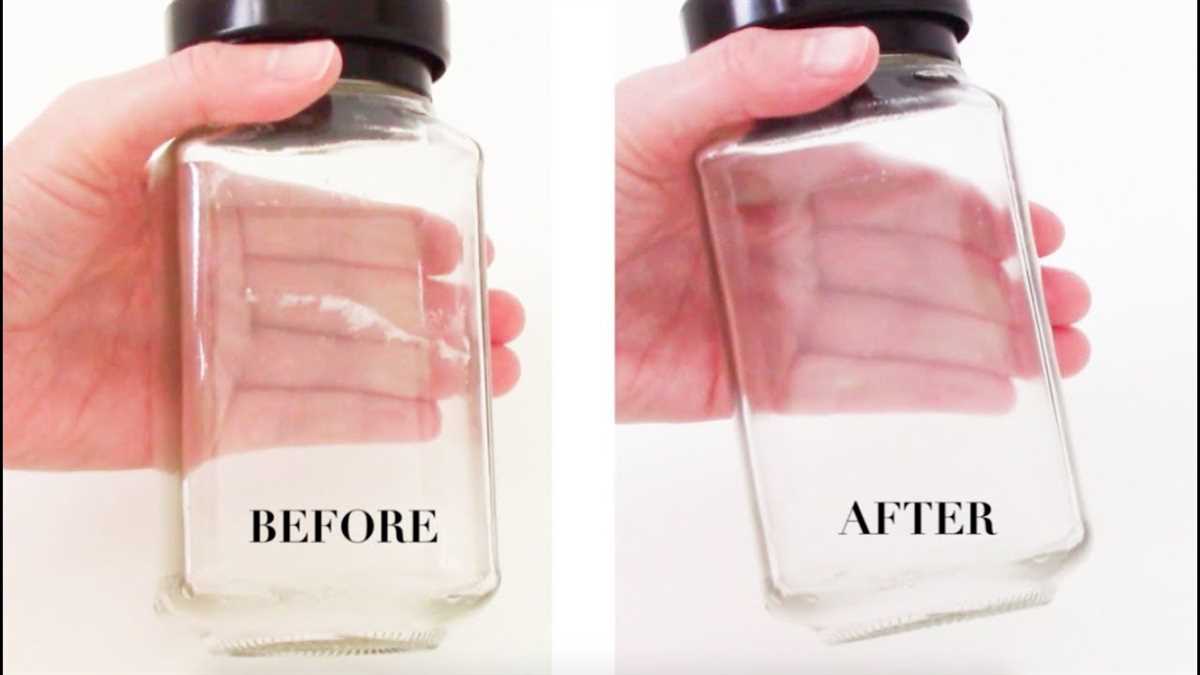
For items that can withstand heat and water, boiling water can be used to remove sticker residue. Fill a pot with enough water to fully submerge the item with the sticker residue. Place the pot on the stove and bring the water to a boil. Carefully place the item in the boiling water, ensuring that the sticker residue is fully submerged. Allow the item to sit in the boiling water for several minutes. The heat and water will help loosen the adhesive, making it easier to remove the sticker residue. After the designated time, carefully remove the item from the water and use a plastic scraper or your fingers to peel off the softened residue.
Important Note:
When using heat to remove sticker residue, it’s important to exercise caution and protect yourself from potential burns. Always follow the instructions provided by the manufacturer for the specific method you choose to use. If the sticker residue is located on a delicate or heat-sensitive surface, consider using a different method or consulting a professional to avoid damage.
Chemical Solutions
Rubbing Alcohol
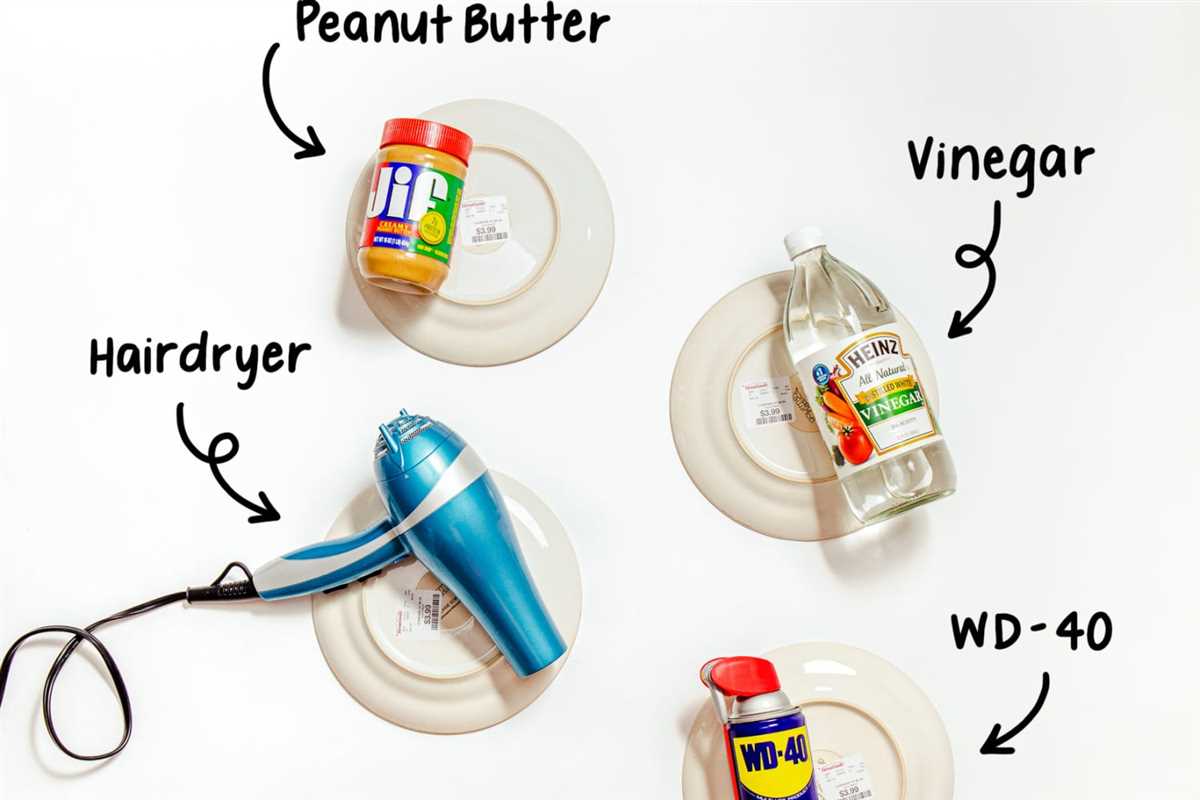
One effective chemical solution to remove stubborn sticker residue is rubbing alcohol. It is readily available and works great on most surfaces. Follow these steps to use rubbing alcohol:
- Apply a small amount of rubbing alcohol directly onto the sticky residue.
- Let it sit for a few minutes to allow the alcohol to penetrate the adhesive.
- Gently rub the area with a soft cloth or sponge to loosen the residue.
- Wipe away the residue with a clean cloth.
Vinegar
Vinegar is another useful chemical solution to remove sticker residue. Here’s how to use it:
- Soak a cloth or sponge in vinegar.
- Place the cloth or sponge on top of the sticky residue and let it sit for 15-20 minutes.
- Gently rub the residue with the cloth or sponge to loosen it.
- Wipe away the residue with a clean cloth.
Goo Gone
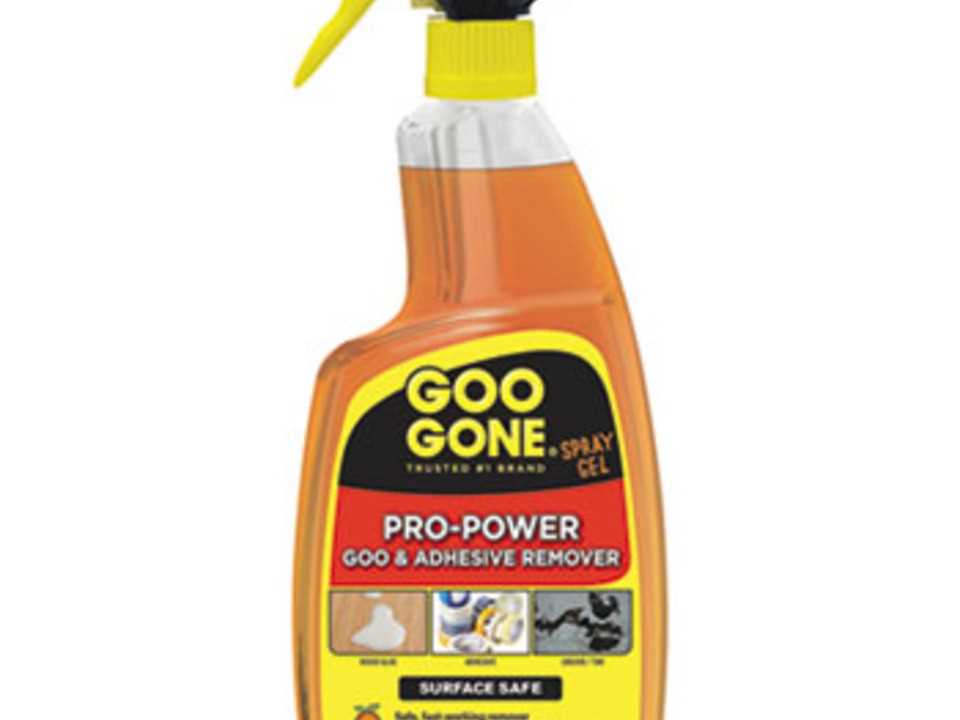
Goo Gone is a commercial adhesive remover that is highly effective in removing stubborn sticker residue. Here’s how to use it:
- Apply Goo Gone directly onto the sticky residue.
- Let it sit for a few minutes to allow the product to penetrate the adhesive.
- Using a soft cloth or sponge, gently rub the area to loosen the residue.
- Wipe away the residue with a clean cloth.
WD-40
WD-40 is a versatile product that can be used to remove sticker residue. Here’s how to use it:
- Spray WD-40 directly onto the sticky residue.
- Let it sit for a few minutes to allow the product to penetrate the adhesive.
- Gently rub the area with a soft cloth or sponge to loosen the residue.
- Wipe away the residue with a clean cloth.
Acetone or Nail Polish Remover
If the sticker residue is particularly stubborn, you can try using acetone or nail polish remover. However, these solutions should be used with caution as they can damage certain surfaces. Here’s how to use them:
- Dampen a cloth or cotton ball with acetone or nail polish remover.
- Gently rub the sticky residue with the cloth or cotton ball.
- Continue rubbing until the residue is completely removed.
- Wipe away any excess solution with a clean cloth.
Note:
Before using any chemical solution, it’s important to test it on a small, inconspicuous area of the surface to ensure it doesn’t cause any damage or discoloration.
Oils and Solvents
Oils and solvents are commonly used to remove stubborn sticker residue. They help break down the adhesive and make it easier to remove the residue from different surfaces. Here are some commonly used oils and solvents for this purpose:
1. Vegetable Oil
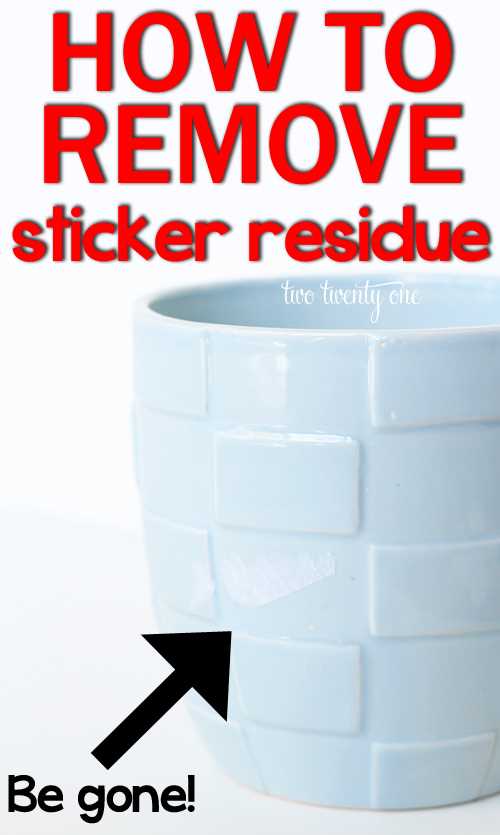
Vegetable oil, such as olive oil or coconut oil, can be used to remove sticker residue. Apply a small amount of oil to the residue and let it sit for a few minutes. Scrub the area gently with a soft cloth or sponge to remove the residue. Rinse with warm water and soap to get rid of any oily residue.
2. Rubbing Alcohol
Rubbing alcohol is an effective solvent that can dissolve sticker residue. Dampen a cloth or sponge with rubbing alcohol and apply it to the residue. Let it sit for a few minutes and then rub the area gently to remove the residue. Rinse with water and wipe the surface dry.
3. Goo Gone
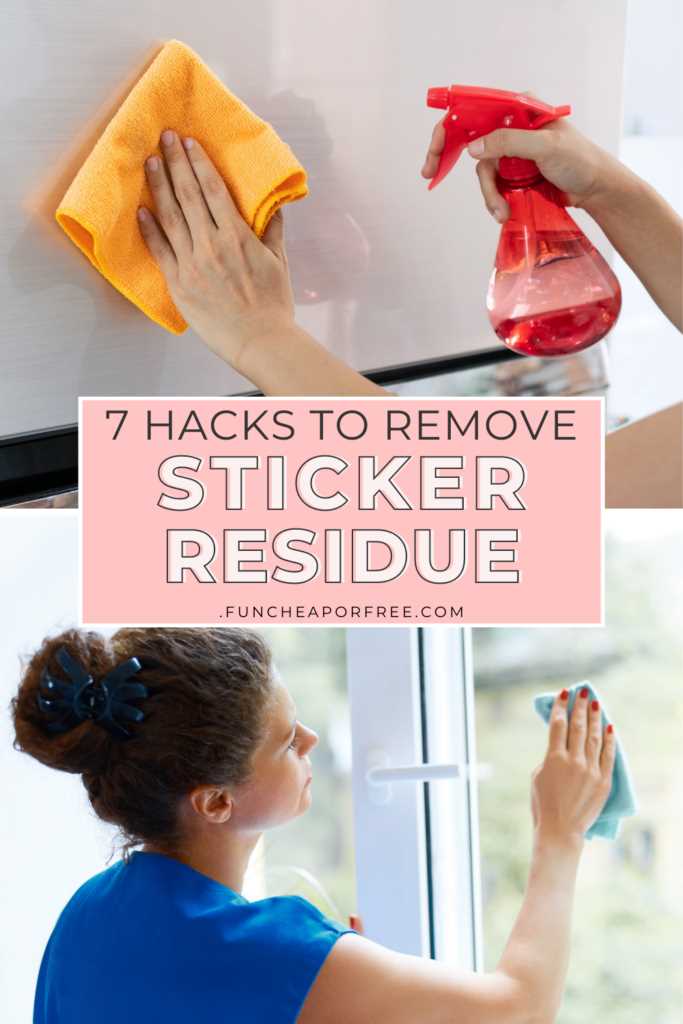
Goo Gone is a commercial adhesive remover that is specifically designed to remove stubborn sticker residue. Apply a small amount of Goo Gone to the residue and let it sit for a few minutes. Use a cloth or sponge to gently rub the area and remove the residue. Rinse with water and wipe dry. Be sure to follow the instructions on the Goo Gone bottle.
4. WD-40
WD-40 is a multi-purpose product that can also be used to remove sticker residue. Spray a small amount of WD-40 on the residue and let it sit for a few minutes. Use a cloth or sponge to gently rub the area and remove the residue. Rinse with water and wipe dry.
5. Nail Polish Remover
Nail polish remover, which typically contains acetone, can be used to remove sticker residue. Apply a small amount of nail polish remover to the residue and let it sit for a few minutes. Use a cloth or sponge to gently rub the area and remove the residue. Rinse with water and wipe dry.
Before using any oil or solvent, it is important to test it on a small, inconspicuous area to ensure that it does not damage or discolor the surface. Additionally, always use these substances in a well-ventilated area and follow the manufacturer’s instructions for safe use.
Scraping Techniques
When it comes to removing stubborn sticker residue, scraping can be an effective method to tackle the problem. Here are some scraping techniques that you can try:
1. Plastic Scraper
Using a plastic scraper is one of the safest ways to remove sticker residue without damaging the surface underneath. Gently slide the edge of the scraper under the residue and push in a forward motion to lift it off. Be cautious not to apply too much pressure to avoid scratching the surface.
2. Credit Card
If you don’t have a plastic scraper, a credit card can be a useful alternative. Hold the card at a shallow angle and use the edge to scrape away the residue. Again, be gentle to prevent any damage to the surface.
3. Rubber Eraser
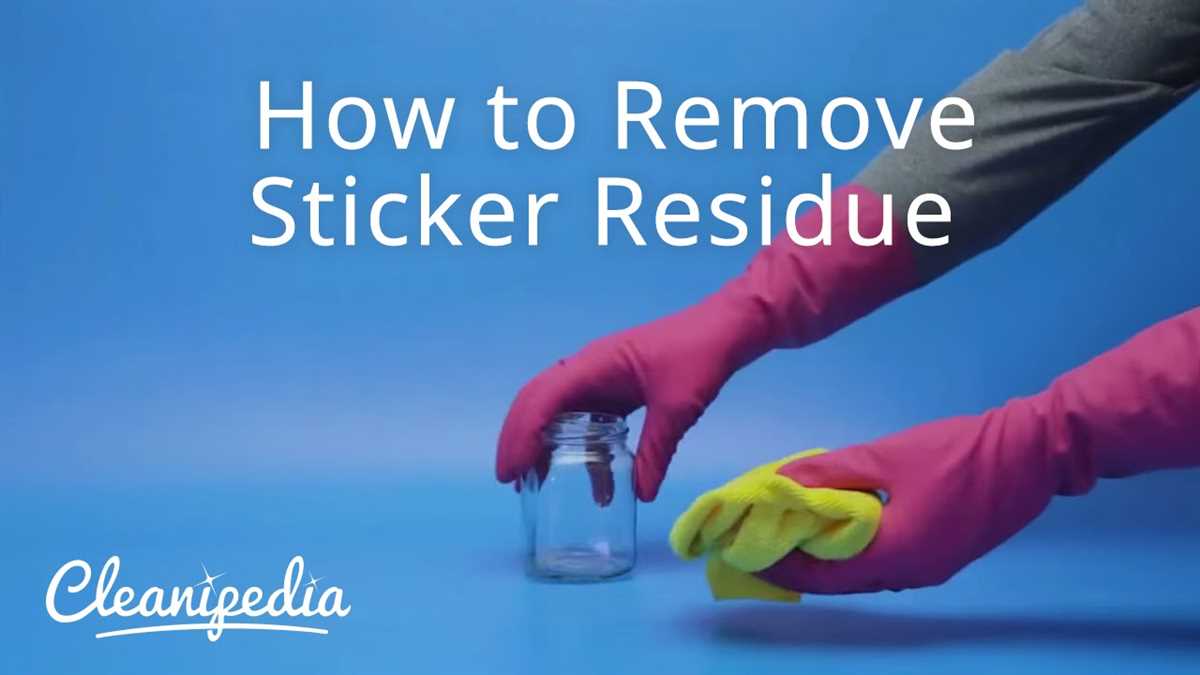
A rubber eraser can work wonders in removing sticker residue, especially on delicate surfaces. Simply rub the eraser over the residue in a circular motion, applying light pressure. The residue should start to lift off gradually.
4. Heat Gun or Hairdryer
If the sticker residue is particularly stubborn, applying heat can make it easier to scrape off. Use a heat gun or hairdryer on a low setting to warm up the residue. Once it softens, use a plastic scraper or credit card to gently scrape it off.
5. Adhesive Remover
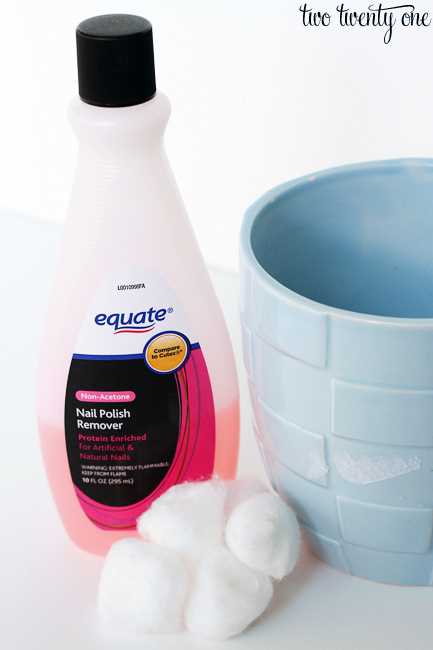
If the above techniques fail to remove the residue completely, you can try using an adhesive remover. Apply a small amount of the remover to a cloth or sponge and carefully rub the residue until it loosens. Be sure to follow the manufacturer’s instructions and test the remover on a small, inconspicuous area before using it on the entire surface.
Remember to always be gentle and patient when using any scraping techniques to remove sticker residue. Take your time and don’t rush the process to avoid damaging the surface you’re working on.
FAQ
What are some effective methods to remove stubborn sticker residue easily?
There are several effective methods to remove stubborn sticker residue easily. One method is to use rubbing alcohol or nail polish remover. Simply apply some to a cloth or cotton ball and gently rub the residue until it comes off. Another method is to use a mixture of baking soda and cooking oil. Create a paste by mixing the two ingredients together and then apply it to the residue. Let it sit for a few minutes, then scrub it off with a cloth or sponge. Additionally, heating up the residue with a hairdryer and then peeling it off can also be effective.
What household items can be used to remove sticker residue?
There are several household items that can be used to remove sticker residue. Some common ones include rubbing alcohol, nail polish remover, vinegar, baking soda, and cooking oil. Rubbing alcohol and nail polish remover can be applied to a cloth or cotton ball and used to gently rub off the residue. Vinegar can be diluted with water and used as a cleaning solution, or it can be sprayed directly onto the residue. Baking soda can be mixed with cooking oil to create a paste, which can then be applied to the residue. Cooking oil can also be used on its own to soften and remove the residue.
Can heat be used to remove sticker residue?
Yes, heat can be an effective method to remove sticker residue. One way to do this is by using a hairdryer. Simply hold the hairdryer close to the residue and apply heat to soften it. Once the residue is heated, it can be easily peeled or scraped off. Another way to use heat is by soaking the object with the residue in hot water. The heat from the water can help loosen the residue, making it easier to remove. However, it is important to be cautious when using heat to remove sticker residue, as excessive heat can damage certain surfaces.
Are there any natural methods to remove sticker residue?
Yes, there are several natural methods to remove sticker residue. One method is to use vinegar. Simply soak a cloth or sponge in vinegar and apply it to the residue. Let it sit for a few minutes, then gently scrub it off. Another natural method is to use baking soda and cooking oil. Mix the two ingredients together to create a paste, then apply it to the residue. Let it sit for a few minutes, then scrub it off with a cloth or sponge. Additionally, lemon juice can also be effective in removing sticker residue. Apply it to the residue and let it sit for a few minutes, then wipe it off with a cloth.
Can sticker residue be removed from clothing?
Yes, sticker residue can be removed from clothing. One method is to use rubbing alcohol. Dampen a cloth or cotton ball with rubbing alcohol, then gently rub it on the residue. Once the residue is loosened, it can be scraped off using a blunt object. Another method is to use a mixture of dish soap and warm water. Create a soapy solution and soak the clothing item in it for a few minutes. Then, gently rub the residue with a sponge or cloth until it comes off. It is important to check the clothing’s care instructions before attempting to remove the residue, as certain fabrics may be more delicate and require special care.
What should I do if the sticker residue is on a delicate surface?
If the sticker residue is on a delicate surface, there are a few steps you can take to remove it without causing damage. First, try using a gentle method such as rubbing alcohol or vinegar. Apply a small amount to a cloth or cotton ball and gently rub the residue, being careful not to scrub too hard or use excessive force. If the residue does not come off, try using a plastic scraper or credit card to gently lift it off the surface. Be sure to use caution and not to scratch or scrape the surface. If the residue persists, it may be best to seek professional advice or assistance to prevent any further damage.





